 Підручники
Підручники
Карпюк О.Д. Англійська мова 11 клас

Новорічні свята вже зовсім скоро!
Давайте разом готуватися до них! Пропонуємо низку корисних та цікавих матеріалів від ресурсного сайту для вчителів onestopenglish.com
Цікаві розробки уроків, квестів та багато іншого Ви можете безкоштовно завантажити тут
Наближається Різдво, яке обожнюють і дорослі, і діти. Не можна уявити це свято без щедрівок та колядок. Пропонуємо їх на англійській мові тут
Неймовірно цікаві ідеї від Jim Scrivener щодо використання Advent calendars на уроках знаходяться тут
та на сторінці Facebook: Macmillan Education Ukraine
Готуємося до Літнього Мовного табору
Програми GoCamp 2019
- Animal Planet (08 - 12 років) https://drive.google.com/open?id=14kvRPznoXCc4TEBGRetY9N17hnPQ4RAM
- Innovations and Entrepreneurial Culture (13 - 15 років) https://drive.google.com/drive/folders/1aqkrv54L1qUhUZU9Vp7YcDn9SJvHWR__?usp=sharing
- Arts and Creativity (13 - 15 років) https://drive.google.com/drive/folders/14hmPTWiIkWXkUMm9RoRkl-qiWosDm6A0?usp=sharing
- School as the Heart of the Community - програма створена спеціально для шкіл МХП (13 - 15 років) https://drive.google.com/drive/folders/1LJMVIla44QiQmHAINFW4Mbf72I4HxwvG?usp=sharing
- Leadership (10 - 15 років) https://drive.google.com/drive/folders/1TJvXtCicF4wx5zcSWx75Y02TKNPN_BA5?usp=sharing
- Debate (10 - 15 років) https://drive.google.com/drive/folders/1UGy_ES2xSuEMkRazvShfmg4cGmTESPPM?usp=sharing
Різноманітні ресурси для табору:
Матеріали від Amnesty International:
Матеріали від Міністерства Юстиції:
Матеріали уроку «Інтимні селфі в Інтернеті – жарт чи небезпечний ризик?»
Інструкція по організації табору:
Popular Videos
More like thisPopular Books
More like thisNew Games
More like thisNew Videos
More like thisNew Books
More like thisGrammar resources by area

In
this section you will find a large collection of grammar resources
organized by grammar point to help the busy teacher find exactly what
they need in a hurry.
Past tenses
Where were you? Could / Couldn't
A photo card guessing game, using forms of could.
A photo card guessing game, using forms of could.
-
Father Christmas gets stuck
-
Father Christmas's Journey (A board game)
-
Cambridge English First: Use of English: Language focus: Time expressions
-
Mingling activity: Irregular pasts
-
Mingling activity: Irregular pasts: Lesson plan
-
The history of: Past passives: Lesson plan
-
Where were you? Could / Couldn't: Lesson plan
-
Last week: past simple
-
Last week: past simple: lesson plan
-
100 years ago: Was / were
-
Have we met? Present perfect and past simple
-
Have we met? Present perfect and past simple: Lesson plan
-
Evidence: Past modals
-
Evidence: Past modals: Lesson plan
-
Explain! Past perfect continuous: Lesson plan
-
Explain! Past perfect continuous
-
Holiday activities: Lesson plan
-
Speaking: Holiday activities
-
Memories of the past: Lesson plan
-
Grammar: Memories of the past
-
The accident: Lesson plan
-
Grammar: The accident
-
Guessing game: Past continuous: Lesson plan
-
Guessing game: Past continuous
-
Murder mystery: Lesson plan
-
Grammar: Murder mystery
-
Experiments: Magnetic pennies
-
Experiments: 3D shadows
-
Experiments: Ear gongs
-
Mingling puzzle: Past perfect and past simple: Lesson plan
-
Mingling puzzle: Past perfect and past simple
-
Nails trick: Experiment sheet
-
Nails trick: Worksheet and teacher's notes
-
Experiments: Nails trick
-
Games and activities: What happened?
-
Games and activities: Past continuous challenge
-
Grammar activities: I have never ...
-
Grammar: Let me talk about my life: Lesson plan
-
Grammar: Past tense practice with hilarity: Lesson plan
-
Grammar: On the cards
-
Grammar: On the cards: Lesson plan
-
Speaking: Murder in the classroom: Lesson plan
-
Grammar: Past tense card game: Teacher's notes
-
Grammar: Past tense card game: Worksheet
-
Grammar: Magazine interview role-play: Teacher's notes
-
Grammar: Magazine interview role-play: Worksheet
-
Grammar: My alibi: Teacher's notes
-
Grammar: My alibi: Worksheet
-
Grammar: The no-go game: Lesson plan
-
Bingo: Irregular verbs
-
Modal verbs 5
-
Passives 2
-
Past and future
-
Past perfect and past simple 1
-
Past perfect and past simple 2
-
Past and present
-
Crossword in two halves
-
Past and present
-
Pasts 1
-
Pasts 2
-
Verb flags
-
Pasts 3
-
Used to
-
Used to 1
-
Used to 2
-
Wish 1
-
Grammar contrasts 1: used to and would
Determiners
Impressions: You choose!
Students discuss preferences using both, either and neither to give short presentations.
Students discuss preferences using both, either and neither to give short presentations.
-
Cambridge English First: Use of English: Language focus: Remember and forget
-
Cambridge English First: Use of English: Language focus: Present and past participles
-
Cambridge English First: Use of English: Language focus: Using the word 'pass'
-
Cambridge English First: Use of English: Language focus: Determiners
-
Board game: Indefinite pronouns: Lesson plan
-
Articles 3
-
Articles 2
-
Articles 1
-
Find the families
-
Logical laws
-
Indirect questions 1
-
Articles 1
-
Articles 2
-
Articles and countable and uncountable nouns
-
Grammar: the article in English
-
Grammar: an 'A' or 'The'
-
Teenagers: Grammar: Grammar games
Conditionals
Guessing game: Must, mustn’t, needn’t, don’t have to: Lesson plan
A small-group card guessing game to practise must, mustn’t, needn’t and don’t have to
A small-group card guessing game to practise must, mustn’t, needn’t and don’t have to
-
Pairwork: First conditional
-
Pairwork: First conditional: Lesson plan
-
Reading maze: Third conditional: Lesson plan
-
Reading maze: Third conditional
-
Holiday activities: Lesson plan
-
Speaking: Holiday activities
-
Grammar: The Titanic
-
The Titanic: Lesson plan
-
Grammar: 2010 World Cup: Lesson plan
-
Grammar: 2010 World Cup
-
Picture game: Second conditional: Lesson plan
-
Picture game: Second conditional
-
Build a sail-car of the future: Experiment sheet
-
Build a sail-car of the future: Worksheet and teacher's notes
-
Making sense of road signs: Lesson plan
-
Five minutes out: Lesson plan
-
Grammar: A very bad day
-
Grammar: A very bad day: Lesson plan
-
Games and activities: Health and hygiene
-
Games and activities: Good food, bad food
-
Games and activities: Jigsaw sentences
-
Games and activities: If only
-
Games and activities: What if...?
-
Grammar: Wishes and regrets: Lesson plan
-
Grammar: Money - just imagine! Lesson plan
-
Conditionals 2
-
If … then
-
If sentences 3
-
Conditional dominoes
-
Conditionals 1
-
If sentences 1
-
If sentences 2
-
Conditional dominoes
-
Grammar: teaching conditionals
-
Grammar: 'unless' and 'if'
-
Grammar: teaching conditionals
Reported speech
Team competition: Reported commands
A team competition at upper intermediate level to practise the reported commands He/She told you to … and He/She said to …
A team competition at upper intermediate level to practise the reported commands He/She told you to … and He/She said to …
Passives
Compass: Lesson 3: Eating habits
The third lesson of this new series from award-winning author Lizzie Pinard.
The third lesson of this new series from award-winning author Lizzie Pinard.
-
The history of: Past passives: Lesson plan
-
This restless Earth: Worksheet and teacher's notes
-
Quiz: Present passives: Lesson plan
-
Quiz: Present passives
-
Games and activities: What are they made from?
-
Games and activities: Who was it made by?
-
Grammar: Smart crackle cakes: Lesson plan
-
Grammar: passives in conversation
-
Grammar: passives
-
The passive in English – article
-
The passive in English – tips and activities
-
Passives 1
-
Passives 2
-
Passives 3
-
Passives 4
-
Passives 2
-
Passives 3
-
Passives 4
-
Grammar: word order in passive questions
Adverbs
Grammarman: Episode 3: Never say never
In this episode, Grammarman’s TV appearance is sabotaged by rogue editor Wrongo. Put the adverbs of frequency back into the correct places before Verbo City’s viewing public loses faith in its helpful hero. The answers can be found in the downloadable worksheet to the right of the page.
In this episode, Grammarman’s TV appearance is sabotaged by rogue editor Wrongo. Put the adverbs of frequency back into the correct places before Verbo City’s viewing public loses faith in its helpful hero. The answers can be found in the downloadable worksheet to the right of the page.
-
Grammarman: Episode 3: Never say never: Worksheet
-
Board game: Adverbs
-
Board game: Adverbs: Lesson plan
-
Board game: Frequency adverbs: Lesson plan
-
Board game: Frequency adverbs
-
Pronunciation skills: Adverbs of frequency: Lesson plan
-
Pronunciation skills: Adverbs of frequency
-
Adverbs of time 2
-
Adverbs of time 3
-
Adverbs of time 4
-
Games and activities: Health survey
-
Grammar: Broken hearts and fish out of water: Lesson plan
-
Grammar: The adverb game: Teacher's notes
-
Indirect questions 1
-
Adverbs of time
-
Adverbs of time 1
-
Reveal the answers
-
Word order
-
Grammar: stance markers and adverbials
-
Grammar: frequency adverbs
-
Grammar: the syntactic function of -ing forms
-
Grammar: adverbials and phrases
-
Grammar: The adverb game: Worksheet 2
-
Grammar: The adverb game: Worksheet 1
Adjectives
Father Christmas gets stuck
Three activies using a simple story about Father Christmas.
Three activies using a simple story about Father Christmas.
-
We Wish you a merry Christmas!
-
Boardgame: Comparatives
-
Boardgame: Superlatives: Lesson plan
-
Boardgame: Superlatives
-
Grammarman: Episode 8: Going to extremes: Worksheet
-
Grammarman: Episode 8: Going to extremes
-
Nutrition: Comparing food
-
Experiments: Conductors and insulators
-
Experiments: Gas from garbage
-
Roller-coaster ride: Experiment sheet
-
Roller-coaster ride: Worksheet and teacher's notes
-
Experiments: Roller-coaster ride
-
Using art in the classroom: Part 1: Using art at face value
-
Macmillan Dictionary BuzzWord: debaptism: Lesson plan
-
Macmillan Dictionary BuzzWord: overparenting: Lesson plan
-
Adjective dominoes: Order of adjectives: Lesson plan
-
Describe and grab: Adjectives
-
Speaking: Three Brothers: Lesson plan
-
Speaking: Three Brothers
-
The ring game: Order of adjectives
-
Writing: A nice story
-
Writing: A nice story: Lesson plan
-
Games and activities: House and garden
-
Games and activities: The old, the young and the ugly
-
When I Listen to a Song

-
Games and activities: The weather
-
Children: My dog
-
Games and activities: Adjectives wordsearch
-
Games and activities: Opposites attract
-
Grammar: putting adjectives in order
-
Adjectives with -ed and -ing 2
-
Adjectives with -ed and -ing 2 - worksheet
-
Comparing 1
-
Comparing 2
-
Comparing 4
-
Enough and plenty
-
Adjectives with -ed and -ing 1
-
Thinking of someone lesson
-
Grammar: Vocabulary (extreme adjectives): Worksheet
-
Grammar: Vocabulary (extreme adjectives): Teacher's notes
-
Grammar: Personality assessment task: Worksheet 1
-
Grammar: Personality assessment task: Worksheet 2
-
Grammar: Personality assessment task: Teacher's notes
-
Grammar: Personality traits: Teacher's notes
-
Grammar: Name that city: The cost of living: Teacher's notes
-
Grammar: Name that city: The cost of living: Worksheet 2
-
Grammar: Name that city: The cost of living: Worksheet 1
-
Grammar: Teacher trumps: Teacher's Notes
-
Grammar: Teacher trumps: Worksheet 1
-
Grammar: Teacher trumps: Worksheet 2
-
Adjectives and noun modifiers in English – article
-
Comparative and superlative adjectives – tips and activities
-
Adjectives and noun modifiers in English – tips and activities
-
Comparative and superlative adjectives – article
-
Grammar: verbal adjectives
-
Grammar: gradable and non-gradable adjectives
-
Grammar: two-syllable comparatives
-
Grammar: Personality traits: Worksheet 1
-
Grammar: Personality traits: Worksheet 2
Future tenses
Team competition: Will
A team competition to practise will for promises and predictions.
A team competition to practise will for promises and predictions.
-
Team competition: Will: Lesson plan
-
World trip: going to
-
World trip: going to: Lesson plan
-
Imagine: Future perfect: Lesson plan
-
Imagine: Future perfect
-
Talking about the future: Lesson plan
-
Talking about the future
-
Holiday game: Future of can/can't: Lesson plan
-
Holiday game: Future of can/can't
-
Mingling activity: Future continuous: Lesson plan
-
Mingling activity: Future continuous
-
Build a sail-car of the future: Experiment sheet
-
Build a sail-car of the future: Worksheet and teacher's notes
-
Grammar: The future's bright: Lesson plan
-
Grammar: The future's bright
-
Games and activities: What's the weather like?
-
Games and activities: To be or not to be?
-
Games and activities: Future perfect challenge
-
Grammar: Making instant decisions: Lesson plan
-
Futures 1
-
Futures 2
-
Futures 3
-
Futures 4
-
Futures 5
-
Futures 6
-
Futures 7
-
Modal verbs 6
-
Past and future
-
Futures 3
Present tenses
-
Impressions: Clothes and accessories
-
Father Christmas gets stuck
-
Father Christmas's Journey (A board game)
-
Cambridge English First: Use of English: Language focus: Time expressions
-
Mingling game: Present simple and continuous: Lesson plan
-
Mingling game: Present simple and continuous
-
Card game: Present simple
-
Card game: Present simple: Lesson plan
-
Ideal room: There is / there are: Lesson plan
-
Ideal room: There is / there are
-
Explain! Past perfect continuous: Lesson plan
-
Explain! Past perfect continuous
-
This restless Earth: Worksheet and teacher's notes
-
River action: Worksheet and teacher's notes
-
River action: PowerPoint presentation
-
River action
-
Experiments: 3D shadows
-
Experiments: Ear gongs
-
Nails trick: Experiment sheet
-
Nails trick: Worksheet and teacher's notes
-
Experiments: Nails trick
-
Roller-coaster ride: Experiment sheet
-
Roller-coaster ride: Worksheet and teacher's notes
-
Experiments: Roller-coaster ride
-
Streetpets: Present simple
-
Games and activities: Plans for the week
-
Games and activities: To be
-
Games and activities: Home and garden
-
Games and activities: Routine sports
-
Speaking: Guessing game
-
Games and activities: Present continuous crossword
-
Games and activities: Present continuous challenge
-
Games and activities: At leisure
-
Games and activities: Present perfect challenge
-
Games and activities: Who am I?
-
Games and activities: The goodbye song
-
Grammar: Yoga in the classroom: Lesson plan
-
Present perfect aspect – tips and activities
-
Grammar: Present continuous with PowerPoint: Worksheet
-
Grammar: Present continuous with PowerPoint: Teacher's notes
-
Grammar: Bargaining: Lesson plan
-
Grammar: Rock band role-play: Lesson plan
-
Grammar: Rock band role-play: Teacher's notes
-
Grammar: Rock band role-play: Worksheet 1
-
Grammar: Rock band role-play: Worksheet 2
-
Grammar: Rock band role-play: Worksheet 3
-
Grammar: Rock band role-play: Worksheet 4
-
Grammar: Professions: Lesson plan
-
Grammar: Present perfect continuous game: Worksheet
-
Grammar: What's been changed: Lesson plan
-
Song titles - pre-intermediate
-
Modal verbs 6
-
Past and present
-
Grammar: Present perfect continuous game: Teacher's notes
-
Present perfect
-
Past and present
-
Want someone to do something
-
Used to 1
-
Used to 2
-
Grammar: reviewing the present simple
Prepositions
Live from London: The economy: Listening activities and transcript
The onestopenglish reporters went to the Houses of Parliament to find out whether locals and tourists were worried about the world's economic situation.
The onestopenglish reporters went to the Houses of Parliament to find out whether locals and tourists were worried about the world's economic situation.
-
Games and activities: Fruity prepositions
-
Games and activities: Hop, rabbit, hop!
-
Games and activities: On the dinner table
-
Games and activities: A sunny day
-
Games and activities: Clowning around
-
Games and activities: Outer space
-
The corpus principle: Part 5 - Language rules
-
Games and activities: Animal prepositions
-
Games and activities: In the desert
-
Games and activities: Household items
-
Pictures: Black cat hunt
-
Prepositions relating to movement and position - article
-
Prepositions relating to movement and position - tips and activities
-
Young learners: Card game for prepositions: Lesson plan
-
Logical laws
-
Classroom cubes
-
Prepositions
-
Prepositions 1
-
Prepositions 2
-
Grammar: around town: vocabulary, prepositions and directions
Modals
Live from London: Christmas video special!

Set in Brixton, London, this video lesson includes authentic interviews with people living in London, telling us how they celebrate Christmas.
Set in Brixton, London, this video lesson includes authentic interviews with people living in London, telling us how they celebrate Christmas.
-
Where were you? Could / Couldn't
-
Guessing game: Must, mustn’t, needn’t, don’t have to
-
Pairwork: Should have / shouldn’t have
-
Pairwork: Should have / shouldn’t have: Lesson plan
-
Boardgame: Comparatives: Lesson plan
-
Card game: Must and Mustn't
-
Card game: Must and mustn't: Lesson plan
-
Where were you? Could / Couldn't: Lesson plan
-
Evidence: Past modals
-
Evidence: Past modals: Lesson plan
-
Holiday game: Future of can/can't: Lesson plan
-
Grammarman: Episode 12: The Obligator
-
Grammarman: Episode 12: The Obligator: Worksheet
-
Opinions: should
-
Celebrity wedding planner: Lesson plan
-
Grammar: Celebrity wedding planner
-
Marketing strategy: Level 1: Lesson plan
-
Guessing game: used to: Lesson plan
-
Guessing game: used to
-
Experiments: Gas from garbage
-
Build a sail-car of the future: Experiment sheet
-
Build a sail-car of the future: Worksheet and teacher's notes
-
Making sense of road signs: Lesson plan
-
Advice and suggestions 2
-
Business skills bank: Socializing in English: Lesson plan
-
Grammar: mood and modality 1
-
Grammar: mood and modality 2
-
Grammar: Should I stay or should I go: Teacher's notes
-
Grammar: Should I stay or should I go: Worksheet
-
Grammar: Should I stay or should I go: Worksheet
-
Grammar: Can you do it: Lesson plan
-
Grammar: Can't you be more positive: Lesson plan
-
Grammar: Figure it out: Teacher's notes
-
Grammar: Figure it out: Worksheet 2
-
Grammar: Figure it out: Worksheet 1
-
Grammar: You must not: Teacher's notes
-
Grammar: You must not: Worksheet 1
-
Indirect questions 1
-
Indirect questions 2
-
Modal verbs 1
-
Modal verbs 2
-
Modal verbs 3
-
Modal verbs 4
-
Modal verbs 1
-
Modal verbs 2
-
Modal verbs 3
-
Modal verbs 4
-
Modal verbs 5
-
Modal verbs 6
-
Passives 2
-
Passives 3
-
Passives 4
-
Modal verbs 9
-
Modal verbs 10
-
Modal verbs 11
-
Modal verbs 7
-
Modal verbs 8
-
Advice and suggestions 1
-
The man who lost his memory
-
Modal verbs 1 – article
-
Modal verbs 1 – tips and activities
-
Modal verbs 2 – article
-
Modal verbs 2 – tips and activities
-
Grammar: modal verbs may and might
-
Grammar: differences between could and can
-
Grammar: teaching the modals 'ought to', 'should', 'must' and 'have to'.
-
Grammar: You must not: Worksheet 2
-
Grammar: You must not: Worksheet 3
Nouns
Finish the sentence: Past perfect continuous
A small-group card game to practise the past perfect continuous.
A small-group card game to practise the past perfect continuous.
-
Fruit: Some and any
-
Grammarman: Episode 18: Dr Adam Bomm: Worksheet
-
Grammarman: Episode 18: Dr Adam Bomm
-
Grammarman: Episode 17: How queer
-
Grammarman: Episode 17: How queer: Worksheet
-
Grammarman: Episode 15: Dinah Myte
-
Grammarman: Episode 15: Dinah Myte: Worksheet
-
Grammarman: Episode 11: Anna Gramme: Worksheet
-
Grammarman: Episode 11: Anna Gramme
-
Grammarman: Episode 7: Luthor Lexis
-
Macmillan Dictionary BuzzWord: debaptism: Lesson plan
-
Macmillan Dictionary BuzzWord: overparenting: Lesson plan
-
Pronunciation skills: Stress in compound nouns: Lesson plan
-
Pronunciation skills: Stress in compound nouns
-
Games and activities: Odd one out
-
TKT Tip 01: Module 1 - Types of nouns
-
Games and activities: What am I?
-
Games and activities: Perfect pronouns
-
Grammar: Noun phrases
-
Teenagers: Grammar: Can you touch...?: Teacher's notes
-
Teenagers: Grammar: Can you touch...?: Worksheet 1
-
Teenagers: Grammar: Can you touch...?: Worksheet 2
-
Teenagers: Grammar: Can you touch...?: Worksheet 3
-
Countable and uncountable 1
-
Countability and noun types - article
-
Countability and noun types - tips and activities
-
Prepositions of time and place - article
-
Prepositions of time and place - tips and activities
-
Prepositions relating to movement and position - article
-
Prepositions relating to movement and position - tips and activities
-
Relative clauses in English - article
-
Relative clauses in English – tips and activities
-
Grammar: Card game for countables and uncountables: Teacher's notes
-
Grammar: Card game for countables and uncountables: Worksheet
-
Grammar: Countable vs uncountable nouns: Teacher's notes
-
Grammar: Countable vs uncountable nouns: Worksheet 1
-
Grammar: Countable vs uncountable nouns: Worksheet 2
-
Grammar: Countable vs uncountable nouns: Worksheet 3
-
Young learners: Frodo's backpack: Lesson plan
-
Young learners: Frodo's supplies: Lesson plan
-
Young learners: The home game: Lesson plan
-
Find the families
-
Countable and uncountable 1
-
Countable and uncountable 2
-
Countable and uncountable 3
-
Countable and uncountable 4
-
Picture pairs
-
Countable and uncountable 5
-
Fifteen records
-
Countable and uncountable 2
-
Countable and uncountable 3
-
Articles and countable and uncountable nouns
-
Grammar: 'them' and 'they'
-
Teenagers: Grammar: Grammar practice
-
Teenagers: Grammar: Grammar games
Цікаві матеріали до святкових уроків
Новорічні свята вже зовсім скоро!
Давайте разом готуватися до них! Пропонуємо низку корисних та цікавих матеріалів від ресурсного сайту для вчителів onestopenglish.com
Цікаві розробки уроків, квестів та багато іншого Ви можете безкоштовно завантажити тут
Наближається Різдво, яке обожнюють і дорослі, і діти. Не можна уявити це свято без щедрівок та колядок. Пропонуємо їх на англійській мові тут
Неймовірно цікаві ідеї від Jim Scrivener щодо використання Advent calendars на уроках знаходяться тут
Чи встигли Ви вже всім підготувати Різвяну листівку? Ми можемо допомогти, ідеї знайдете тут
Які ж свята без подарунків? Допоможемо всім правильно організувати покупки! Шукайте матеріали тут
Нагадуємо, що ресурсний сайт onestopenglish.com надає унікальну можливість зареєструватися та отримати вільний доступ до всіх матеріалів на 30 днів БЕЗКОШТОВНО!!! Скористайтеся ним! Зареєструватись можна тут
Бажаємо всім приємних турбот у підготовці до Новорічних та Різдвяних свят ;)!
Слідкуйте за новинами видавництва на нашому сайті: www.macmillanukraine.comта на сторінці Facebook: Macmillan Education Ukraine
Україна заговорить англійською!
Інноваційна он-лайн технологія вивчення іноземних мов від "Академії Навичок" (Skills Academу)
Навчання безкоштовне!
Наша мета
Покращити знання та навички володіння іноземними мовами державними службовцями у відповідності до стандартів ЄС, а також:
- вчителями, викладачами, працівниками системи освіти
- студентами (завдяки запровадженню системи змішаного навчання (blended learning) у ВУЗах України)
- внутрішньо переміщеними особами
- тимчасово безробітніми, які знаходяться на обліку у Державному центрі зайнятості України
- учасниками АТО та членами їх сімей з метою їх скорішої адаптації, підвищення конкурентоздатності на ринку праці та збільшення можливості отримати гідну роботу або відкрити власну справу.
How to Teach English
By learning how to teach English you can become much more efficient and successful. This section of the site is here to give you all the tips and advice you need to truly and effectively help your students. You can start by reading the following article (The 10 Most Helpful Pieces of Advice) and then check out the other articles and resources:
eBooks and Downloadable Files for Teachers
English Language Teaching Tips and Advice

How to Teach English – the 10 Most Helpful Pieces of Advice
If you have studied an ESL teaching course you were probably given a lot of advice on how to teach English by tutors, and by well-meaning friends, colleagues or strangers. Sometimes it's too much to take in so here is what I have found useful.The 10 most helpful "How to teach English" pieces of advice:
1. You don't need to stick to a lesson plan.
This may come as a shock, but things will happen in your classes that you don't expect! Students will finish some activities too soon and take longer on others. Some things will be easy for them, and others that you expect them to understand quickly will be tougher. It is more important to be flexible than stick rigidly to something that isn't working.
2. You don't need to know all the answers.
Another
shock? I taught some classes where they asked me questions I couldn't
answer right then. I told them I would find out for them, and I did. As
long as you are honest, say you don't know, and then give the answers
later, that's fine.
3. Every student is different.
Now,
that may be obvious, but so many teachers forget this when they are
teaching and treat each student in the same way. That won't work. Get
to know your students, their learning styles and their strengths and
weaknesses. If possible, create a variety of tasks to suit different
students in the class.
4. You can't force students to learn, nor should you.
Teachers
often feel responsible if their students don't progress. You can give
them the tools for learning and inspire them to want to learn, but then
it becomes the individual student's responsibility to learn, not only
yours.
5. Have a personality.
Be yourself. Let
the students see you're a human being and not a teaching machine. Laugh
at yourself if you make mistakes. Bring humor into the classroom.
6. Be encouraging.
Error
correction is essential in the right circumstances, but if you correct
every mistake then you can easily destroy a student's confidence. Praise good work and never tell students they are stupid. Students who think they are stupid lose motivation.
7. Balance your lessons between different skills.
A
teacher who teaches 90% grammar is not helping the students.
Communication skills, reading, writing, and vocabulary building are all
as important as grammar. Possibly even more important than grammar!
8. Keep an emergency resources box.
Include
games, paper, colored pencils, extra worksheets, magazines etc. This
will be invaluable if you need to add a new activity into the lesson or
to extend something the students are working on.
9. Give homework.
This
is controversial! You can't force students to do homework, but if you
give them the choice then they will feel encouraged and they can take
responsibility for their learning. It is really important to mark the
homework if you do give it, and not leave it on your desk for weeks.
10. Have fun!
If you enjoy your lessons, then your students will too.These are the pieces of advice that helped me learn how to teach English and I'm sure they will help you too!
eBooks and Downloadable Files for Teachers
Free English Grammar Test for DownloadEnglish Short Stories Book and Workbook (ESL Short Stories and Exercises)
English Short Stories for Complete Beginners Bundle
English Short Stories for Complete Beginners
Simple Past Tense, a Step-by-Step Guide
English Plural Nouns, a Step-by-Step Guide
English Language Teaching Tips and Advice
Education advice
Was Your Child Labeled with a Mental Disorder?The Differences between Medical Diseases and Psychiatric Disorders
Psychostimulants, Facts for Teachers
Alternatives to Psychiatric Drugs
Violence in Schools and Psychiatric Drugs
The Risks of Mental Health Screening
Vocabulary
Activities for Teaching Vocabulary: How Can You Teach (or Learn) New Words?Teaching English Idiomatic Expressions – Solutions for Understanding
Everyday Speech
Reading & writing
How to Teach the Alphabet (ESL)ESL Stories: The Importance of Short Fiction for English Learners
Finding High-Interest Low-Vocabulary Books for English Students –
Books for Reluctant Readers
How to Help Your Students Learn to Read English
Teaching Writing Skills
How to Teach Spelling
ESL Workbooks
Listening & speaking
How to Create Useful ESL Listening ActivitiesHow to Include ESL Speaking Activities in Your Lessons
Teaching English Conversation
Methods for Correcting Students
Different Accents in English and How to Teach Them in Your Classroom
Lesson plans
Best English Lesson PlansVocabulary Lesson Plans
Adjectives Lesson Plans
Library Lesson Plans
How to Write a Daily Lesson Plan Template
Printable English Grammar Lessons – A Useful Tool for Busy ESL Teachers
Printable ESL Worksheets
Teaching English Tips – Time Management and Running Out of Work
Fun English Activities outside the Classroom
How to Write ESL Culture Lesson Plans
Teaching English to Children (for teachers)
How to Learn English for Kids (for parents)
Teaching English to Teenagers
Teaching English to Adults
What is a Smart Board?
Smart Board Lesson Plans
Best Practices in Teaching English
How to Organize Your English Lesson
Teaching English: Icebreaker Activities
Lesson Plan with the Song "Wind of Change"
Games, songs and role plays
Fun ESL Games – Make Lessons Fun with ESL Games!Improve Your Lessons with ESL Vocabulary Games
Examples and Specific Advice on ESL Vocabulary Games
Teachers Games for Vocabulary
Great ESL Songs and How to Use Them
Great Role Plays for ESL Students
Vocabulary Videos – How to Use them in Your ESL Class
Hands-on Activities for Teaching English
More Hands-on Activities and Games for Teaching English
Methods and terms
ESL TermsDifferent English Language Teaching Methods
What Are the CEFR Levels?
English teaching training
How to Become an English TeacherHow Do I get ESL Teacher Certification?
What is CELTA?
The Trinity TESOL Qualification
Teaching English for Special Purposes
Teaching English: TEFL or TESOL?
How to Teach the Alphabet (ESL)
Top Facebook Pages for English Language Teachers
English teaching jobs
How to Find English Teaching JobsOnline Teaching Jobs – The Future of Learning
Online Tutoring Jobs
Teaching English overseas
English Teaching Jobs OverseasTeaching English in Europe
EFL Jobs in the UK
English Teaching Jobs – Moscow and Russia
Teaching materials and resources
Books to Learn English, How to Help Your Students (British English)Essential ESL Teaching Materials
What ESL Supplies do you Need?
Get Vocabulary, Grammar and Teaching Tips, Site Updates and Special Offers Directly to Your Mailbox
Join now and get a special bonus:
First 2 chapters of the English Short Stories Book and Workbook.
Macmillan Life Skills: безкоштовні онлайн ресурси для навчання життєвих компетентностей на уроках англійської мови
В умовах переходу шкільної освіти на нові державні стандарти стає важливим не тільки формувати лінгвістичну компетенцію в учнів, а й навчати іншим компетенціям, зазначеним у Державному стандарті, через предмет «англійська мова».Видавництво «Макміллан Ед'юкейшн» пропонує серію розроблених уроків різного рівня складності, які є безкоштовними для завантаження з нашого сайту http://www.macmillanenglish.com/life-skills/ за такими тематичними блоками:
Вміння організовувати свою роботу
Соціальні компетенції
Управління людьми
Критичне мислення
Тайм-менеджмент
Полікультурна компетенція
Комунікативні компетенції
Вміння спілкуватися та співпрацювати
Вміння вчитися
За поданими нижче посиланнями Ви знайдете не лише плани уроків, а й методичні статті наших експертів з ELT, поради вчителям та відео матеріали.
Зверніть увагу на матеріали для професійного вдосконалення вчителів http://www.macmillanenglish.com/life-skills/teachers/
Окремим блоком стоять матеріали для навчання дошкільнят та молодших школярів http://www.macmillanenglish.com/life-skills/young-learner-resources/
Методичні рекомендації щодо використання онлайн ресурсів Macmillan Life Skills
Кожен урок містить завдання, спрямовані на розвиток лексичної компетенції учнів через парну, групову та індивідуальну форми роботи. Уроки містять завдання на розвиток всіх чотирьох видів мовленнєвої діяльності: аудіювання, читання, говоріння, письмо. Кожна розробка представляє собою покроковий план-конспект уроку для вчителя та роздатковий матеріал для учнів. Уроки розраховані на 45-60 хвилин кожний.Вміння організовувати свою роботу
http://www.macmillanenglish.com/life-skills/getting-organised/http://www.macmillanenglish.com/life-skills/creativity/
• Планування, організація та уміння надавати пріоритет є важливими компетенція ми, які застосовуються до всіх сфер нашого життя. Створення організованого навчального простору і уміння ефективно управляти навчанням є суттєвим для академічного життя. На ринку праці роботодавці шукають кандидатів, які вміють демонструвати розставляти пріоритети під час великої завантаженості.
Соціальні компетенції
http://www.macmillanenglish.com/life-skills/social-skills/http://www.macmillanenglish.com/life-skills/self-awareness/
• Як ми бачимо себе і як нас бачать інші? Мати самосвідомість є важливою частиною розуміння того, як ми ведемо себе і вміємо належним чином реагувати в різних соціальних ситуаціях.
• Знання того, що змушує нас кидати виклик деяким з наших власних стереотипів, приділяючи особливу увагу нашим соціальним навичкам, допоможе збудувати кращі відносини і поліпшити взаємодію з тими, хто навколо нас.
Управління людьми
http://www.macmillanenglish.com/life-skills/people-management/• Розуміння того, як керувати людьми в робочій ситуації може означати все, від знання, як отримати найкраще з інших та мотивації команди, до спроможності вести і підтримувати колег у складних ситуаціях.
Критичне мислення
http://www.macmillanenglish.com/life-skills/critical-thinking/• Здатність застосовувати критичне мислення, оцінити інформацію з різних джерел і проаналізувати логіку аргументів є найважливішими для подальшого навчання у ВНЗ. Для учнів, які планують після школи навчатися у ВНЗ, розвиток навичок критичного мислення розглядається як необхідну основу для успіху у навчанні.
Тайм-менеджмент
http://www.macmillanenglish.com/life-skills/time-management/• Усі ми стикаємось з різним тиском та вимогами в особистому, професійному та учнівському житті. Іноді здається, що 24 годин на добу не вистачає. Знати, як ефективно управляти своїм робочим часом, має вирішальне значення, допомагаючи знайти відчуття балансу і зменшити рівень стресу.
Політкультурна компетенція
http://www.macmillanenglish.com/life-skills/cultural-awareness/• Бути шанобливим до інших і приймати думки людей, права і почуття – навіть якщо вони відрізняються від власних – має важливе значення для збереження особистих стосунків. Показати повагу до батьків, вчителів, старших за віком або за професійним статусом – така основна мета ресурсів, які ілюструють важливість цієї компетенції в усіх аспектах нашого повсякденного життя.
Комунікативні компетенції
http://www.macmillanenglish.com/life-skills/communication-skills/• Встановлення контактів та зв’язків з іншими людьми є важливою частиною комунікації. Добірка ресурсів стосується міжособистісних і комунікаційних навичок, які учні можуть розвинути англійською мовою, щоб мати можливість ефективно спілкуватися.
Вміння спілкуватися та співпрацювати
http://www.macmillanenglish.com/life-skills/career-work/http://www.macmillanenglish.com/life-skills/networking/
• Навички ефективного спілкування та співпраці є невід’ємною частиною будь-яких відносин, впливаючи на все, від професійного розвитку до особистісної соціальної взаємодії. Низка ресурсів сприяє формуванню та розвитку міжособистісних та комунікаційних навичок учнів.
Вміння вчитися
http://www.macmillanenglish.com/life-skills/study-skills/• Навчання є невід’ємною частиною академічних успіхів. Незалежно від віку або рівня навчитися бути ефективним учнем і розуміти те, як керувати навчанням, є важливим для всіх учнів. Запропоновані ресурси розглядають різні методи і стратегії навчання в класі і за його межами.
Grammar + Songs
Songs can be an effective way to introduce
or reinforce a grammar topic. Click on the topics below for companion
songs and activities.
(In a blog article posted Oct. 4, 2016 at AzarGrammar.com, I list some of the benefits of using songs to teach grammar that I’ve observed in my own classroom.)
Adverb Clauses in the Song “Baby, I’m Yours”Comparisons with Like
Gerunds as Objects of Prepositions
Gerund or Infinitive after begin, start, continue, like, love, hate, can’t stand
Get to Do Something
Gotta: Informal Spoken English for Got To
I’ve Got It and I’ve Got ‘Em
Reflexive Pronouns
Used to + a Verb in the Simple Form
Wanna: Informal Spoken English for Want To
Wish + Simple Past: Making a Wish About the Present
Verb Tenses:
Future with Gonna: Talking About the Weather
Future with Gonna: Talking About Plans
Future with Will: Offering to Help
Future with Will: Making Promises
Present Perfect: It’s Been vs. It Was
Simple Past: Changing Verbs in the Simple Present to the Simple Past
Simple Past Verbs in the Song “And We Sang La Da”
Simple Past Verbs in the Song “Because You Loved Me”
Simple Past Verbs in the Song “The Castle on the Hill”
Simple Past Verbs in the Song “Lost Boy”
Simple Past Verbs in the Song “This Town”
- Adverb Clauses in the Song “Baby, I’m Yours”
Level: High Intermediate and Advanced
Pair with the Song: “Baby, I’m Yours” (Arctic Monkeys, 2006)
- Comparisons with Like
Level: High Beginning and Up
Pair with the Song: “When We Were Young” (Adele, 2015)
- Future with Gonna: Talking About the Weather
Level: High Beginning and Up
Pair with the Song: “I Can See Clearly Now (Johnny Nash, 1972; Jimmy Cliff, 1993)
- Future with Gonna: Talking About Plans
Level: Low Intermediate and Up
Pair with the Song: “I’m Gonna Love You” (Meghan Trainor, 2015) or “When I’m Gone” (Anna Kendrick, 2012)
 Divide
the class into two groups of equal numbers. (If you have an odd number
of students, participate in the activity yourself to make the groups
even.) Students form two lines facing one another.
Divide
the class into two groups of equal numbers. (If you have an odd number
of students, participate in the activity yourself to make the groups
even.) Students form two lines facing one another.
 2.
Students ask the student facing them, “What are you gonna do after
class?” The student answers, “I’m gonna _______. What are you gonna do?”
The student answers, “I’m gonna _______.” Then one line shifts
position so that each student has a new partner. (The person at the end
of the moving line moves to the beginning of the line.)
2.
Students ask the student facing them, “What are you gonna do after
class?” The student answers, “I’m gonna _______. What are you gonna do?”
The student answers, “I’m gonna _______.” Then one line shifts
position so that each student has a new partner. (The person at the end
of the moving line moves to the beginning of the line.)
3. Students exchange the same information
with their new partners. (Having students recite the same lines with
each partner, like actors in a play, keeps the activity–literally–moving
along. The activity doesn’t get boring because students hear new
information from each partner.) Then they shift positions again.
4. The students in the moving line continue to interact with new
partners and then move on. The activity concludes when the students in
the moving line are back in their original positions.Variation: The Moving Circle. Students form two concentric circles. The inside circle faces out, and the outside circle faces in. After each exchange, the outside circle shifts position; the inside circle remains stationary.
- Future with Will: Offering to Help
Level: Beginning and Up
Pair with the Song: “One Call Away” (Charlie Puth, 2016)
The future-tense construction I’ll +
a verb in the simple form is used when offering to help (usually
spontaneously) and making promises. In the song “One Call Away,” this
construction is used in the line I’ll be there to save the day (repeated four times), which is both an offer to help and a
promise. The interactive worksheet below focuses on making offers to
help. Permission is granted to reproduce for classroom use. For more
activities to pair with this song, please see the Lesson Plans page.
- Future with Will: Making Promises
Level: High Beginning and Up
Pair with the Songs: “I Will Remember You” (Sarah McLachlan, 1999); “One Call Away” (Charlie Puth, 2016); “Can’t Buy Me Love” (Beatles, 1965); “I Will Always Love You” (Whitney Houston, 1992)
The future-tense construction I’ll +
a verb in the simple form is used when making promises. The songs “I
Will Remember You” and “I Will Always Love You” repeat the title phrase,
which is a promise, many times, and the song “One Call Away” repeats
the promise I’ll be there to save the day four times. Part 1 of
the interactive worksheet below gives students practice making
promises. Part 2 is slightly more challenging; it asks students to
evaluate promises (all beginning with I will) that people make
when they get married. It prompted a lot of interaction and laughter in
my class of adults in their 20s and 30s. Permission is granted to
reproduce for classroom use. For more activities to pair with “I Will
Remember You” and “One Call Away,” please see the Lesson Plans page. For more activities to pair with “I Will Always Love You,” please see True Stories Behind the Songs, Unit 6.
Another song that uses will + a verb in the simple form to make promises is The Beatles’ “Can’t Buy Me Love” (I’ll buy you a diamond ring, I’ll give you all I’ve got to give, etc.). The lyrics cloze exercise below focuses on this construction.
- Gerund or Infinitive after begin, start, continue, like, love, hate, can’t stand
Level: Intermediate and Up
Pair with the Song: “7 Years” (Lukas Graham, 2015)
- Gerunds as Objects of Prepositions
Level: Intermediate and Up
Pair with the Song: “Hello” (Adele, 2015)
- Get to Do Something
Level: High Beginning and Up
Pair with the Song: “This Town” (Niall Horan, 2016)
- Gotta: Informal Spoken English for Got To
Level: Low Intermediate and Up
Pair with the Songs: “You Gotta Be” (Des’ree, 1994) or “We Gotta Get Out of This Place” (The Animals, 1965)
- I’ve Got It and I’ve Got ‘Em
Level: Low Intermediate and Up
Pair with the Song: “Can’t Stop the Feeling” (Justin Timberlake, 2016); “My Girl” (The Temptations, 1965)
- Present Perfect: It’s Been vs. It Was
Level: High Beginning and Up
Pair with these Songs: “See You Again” (Charlie Puth and Wiz Khalifa, 2015); “Here Comes the Sun” (George Harrison); “A Change Is Gonna Come“ (Sam Cooke, 1963)
- Reflexive Pronouns
Level: Low Intermediate and Up
Pair with the Song: “Love Yourself” (Justin Bieber, 2015)
- Simple Past: Changing Verbs from Simple Present to Simple Past
Level: High Beginning and Up
Pair with the Song: “I Will Remember You” (Sarah McLachlan, 1999)
- Simple Past Verbs in the Song “And We Sang La Da”
Level: High Beginning and Up
Pair with the Song: “And We Sang La Da” (Cynthia Chitko, 1996)
You could follow up by handing out paper and markers and asking 12 student volunteers to illustrate these lines in the song:
- I drove up to your house.
- I saw the lights were on,
- And so I parked my car
- And walked up to your door.
- As I stood outside,
- I heard your voice.
- And we sang La Da.
- You looked out your window, your face full of surprise.
- You opened the door
- And pulled me in.
- As I caught the look within your eyes, you caught the look in mine,
- And we fell into a dance across the floor.
 If
you have the ability to project documents in your classroom, you could
play the song again while projecting the students’ drawings on a screen
one by one, creating an impromptu musical slide show. This created a lot
of interest and chuckling in my class, as the drawings were short on
finesse (but big on creativity!).
If
you have the ability to project documents in your classroom, you could
play the song again while projecting the students’ drawings on a screen
one by one, creating an impromptu musical slide show. This created a lot
of interest and chuckling in my class, as the drawings were short on
finesse (but big on creativity!).- Simple Past Verbs in the Song “Because You Loved Me”
Level: High Beginning and Up
Pair with the Song: “Because You Loved Me” (Celine Dion, 1996)
- Simple Past Verbs in the Song “The Castle on the Hill”
Level: High Beginning and Up
Pair with the Song: “The Castle on the Hill” (Ed Sheerhan, 2017)
- Simple Past Verbs in the Song “Lost Boy”
Level: High Beginning and Up
Pair with the Song: “Lost Boy” (Ruth B., 2016)
- Simple Past Verbs in the Song “This Town”
Level: High Beginning and Up
Pair with the Song: “This Town” (Niall Horan, 2016)
- Used to + a Verb in the Simple Form
Level: High Beginning and Up
Pair with the Song: “Somebody That I Used to Know” (Gotye,)
- Wanna: Informal Spoken English for Want To
Level: Low Intermediate and Up
Pair with the Songs: “Something Just Like This” (The Chainsmokers and Coldplay, 2017) or “I Want to Hold Your Hand” (The Beatles, 1963)
- Wish + Simple Past: Making a Wish About the Present
Level: Intermediate and Up
Pair with the Songs: “I Wish I Knew How It Would Feel to Be Free” (Nina Simone); “Stressed Out” (Twenty-One Pilots, 2016)
Follow up with the Memory Circle game. First, choose one of the sentences below and have students complete it in writing.
I wish I had _______________________________.I wish I could _______________________________.
I wish I didn’t have to _______________________________.
Students form a circle and follow the steps below. (A circle should not contain more than 12 students, so they may need to form several circles.)
- Student 1 says the sentence he/she wrote. (For example, I wish I had more time to study.)
- Student 2 repeats what Student 1 said. (For example, Maria wishes she had more time to study.)
- Student 2 then adds his/her own sentence. (For example, I wish I had a new car.)
- Student 3 repeats what Students 1 and 2 said. (For example, Maria wishes she had more time to study. Yoshi wishes he had a new car.)
- Student 3 adds his/her own sentence.
- Students continue going around the circle, repeating what the other students said, in order, and then adding his/her own sentence.
- After the last student says all the sentences, ask students to give him/her a round of applause. (It’s not easy to be the last student!)
Welcome to Understanding IELTS!
Welcome to Understanding IELTS: Techniques for English language tests. Thank you for joining this course. We hope you enjoy the next six weeks.How does the course work?
Over six weeks we’ll look at all aspects of the International English Language Testing System (IELTS). We’ll start each week by asking you to share your feelings about one of the four skills of English - reading, speaking, writing and listening. We’ll then look at how these skills are tested in the IELTS test before moving on to what you can do to improve your performance.
Find That Perfect Worksheet
Browse our database of 17,204 free printable worksheets and lesson plans for teaching English. No matter if you teach kids or adults, beginners or advanced students - BusyTeacher will save you hours in preparation time. No registration required.
Вчимо і вчимося слухати
та розуміти англійську!
Аудіокурси – це відмінний спосіб отримати максимум корисної інформації з англійської мови, знявши навантаження з очей. Ви можете займатися домашніми справами, подорожувати, гуляти і слухати подкасти з англійської мови. Величезна кількість акцентів, нюанси вимови ви навчитеся чути і розпізнавати завдяки аудіоматеріалів різноманітних курсів. Навик аудіювання – можливість сприймати англійську мову на слух – ви розвиваєте, слухаючи аудіокурси. Пропонуємо добірку, яка може вас зацікавити.
British Council Podcasts (MP3 + Scripts)
Британська Рада підготувала аудіоматеріали на роки прослуховування. Але нехай вас це не лякає – вони розділені за темами і рівнями. Обирайте те, що підходить саме вам і занурюйтесь в англійську. Крім аудіоматеріалів ви також знайдете ігри та вправи для перевірки засвоєного матеріалу.English USA – Аудіокурс «Так говорять в Америці»
Цей аудіокурс створений журналістами та дикторами легендарного радіо «Голос Америки». Курс складає 104 уроки і розрахований він на два роки. Але ви можете самі вирішувати, з якою інтенсивністю занурюватися в англійську. Головний герой курсу – журналіст Мартін, який подорожує по Америці, спілкується з різними людьми і включає в свої розмови найпоширеніші ідіоми.Завантажити курс можна на сайті.
Чудаков І.В. – Polyglossum – Англійська в дорозі (30 уроків)
Це курс англійської для тих, хто починає занурюватися в нього з нуля. Найпоширеніші розмовні теми представлені окремими уроками, курс зручно слухати за кермом, він включає 10 годин матеріалів.Завантажити аудіоматеріали курсу можна на сайті.
Елізабет Сміт – Англійська за 6 тижнів
Курс розрахований на те, що ви будете вивчати англійську щодня по 35 хвилин в день протягом 6 тижнів. Практика показує, що це не так просто, але дієво, якщо ви дійсно не пропускаєте жодного дня. Завдяки курсу ви зможете вивчити мінімум розмовної лексики (близько 400 слів), яка є найнеобхіднішою при комунікації під час зарубіжних поїздок. Цього мінімуму вам буде досить для подолання мовного бар'єру. Курс може стати хорошою основою для подальшого вивчення англійської.Завантажити аудіокурс можна на сайті.
Уроки англійської з Ритою Бєловою від BBC (178 випусків)
одкаст включає 10 частин, кожна з яких – це одна з важливих розмовних тем. Випусків – велика кількість, але вони розділені на тематичні групи: у доктора, бізнес, ідіоми, побутова лексика, в готелі, в офісі і багато інших. Ви можете jбирати те, що пріоритетно для вас.Завантажити випуски можна на ресурсі.
6 Minute English with BBC (69 випусків)
Короткі аудіовипускі по 6 хвилин. Погодьтеся, таку кількість часу зовсім нескладно виділяти щодня. Кожна програма містить приклади використання слів і пояснення.Завантажити аудіоматеріали можна на сайті.
BBC Grammar Challenge (87 випусків)
Короткі шестихвилинні граматичні подкасти. Ви зможете повторити, уточнити і запам'ятати форми дієслів, часи, прийменники, особливості вимови і інші граматичні нюанси.Завантажити подкасти ви можете на сайті.
Обирайте аудіокурс та занурюйтесь в англійську!
 10 Min School
10 Min School
Весь курс шкільної програми та підготовки до ЗНО.
10 Min School - це розумний вклад у Вашу майбутню успішну кар’єру. Це можливість контролювати Ваш час та розумове навантаження.
Більше 1000 тем шкільної та студентської навчальної програми. 10 Min School - це інтерактивна освіта в зручному форматі.
Наш успіх це Ваш успіх.
Ласкаво просимо у школу майбутнього!
 Time
for kids
Time
for kids
Цікавий і пізнавальний журнал для дітей та підлітків.
У журналі багато рубрик: огляд книг, новини, репортер, свiт і багато інших. На
сторінках видання - історич ні екскурси, анонси подій, статті про супергероїв і
нові відкриття і навіть - про важливі політичні події в світі.
Window on Britain
Пропоную
Вашій увазі відеокурс знайомства із життям та культурої Англії. Тут
представлені цікаві матеріали із тем: Лондон, школа,спорт, їжа, свята, природа.
Поряд із розвитком лексичних навичок, Ви маєте можливість вдосконалити
граматичні навички.
Window to Britain (englishwell.org/324-richard-macandrew-window-on-britain-1-dvdrip-okno-v-britaniyu.html)
This grammar by well-known author Dave Willis
describes the ways that speakers of British English make sentences from sets of
words.
Pronouns
Pronouns
Useful links
Here are links to the
resources on the topics that the educators discussed during the broadcast:
Find the gap - how to increase
speaking in class
Planning a writing lesson
Children’s development
The child as a learner 1 and 2
Teaching exam based writing skills
David Petrie: The autonomous exam student
7 tips to drastically improve your pronunciation in english
Teaching reading to teens
Teaching reading and writing
Correcting the 3rd person ‘S’
Planning a writing lesson
Children’s development
The child as a learner 1 and 2
Teaching exam based writing skills
David Petrie: The autonomous exam student
7 tips to drastically improve your pronunciation in english
Teaching reading to teens
Teaching reading and writing
Correcting the 3rd person ‘S’
Food service vocabulary
English for kitchens
Food and drink vocabulary
English for cooks
Hospitality and tourism
English for kitchens
Food and drink vocabulary
English for cooks
Hospitality and tourism
British Council SEN course – the
first module is free
Teaching materials for students with special educational needs
TES resources for special educatioal needs
FutureLearn course: Dyslexia
Teaching materials for students with special educational needs
TES resources for special educatioal needs
FutureLearn course: Dyslexia
Keeping students interested
Developing listening skills
Teaching grammar
Songs and grammar for primary
Developing listening skills
Teaching grammar
Songs and grammar for primary
Benefits of storytelling
Storytelling techniques
Storytelling handbook for teachers of primary learners – large pdf download
Storytelling techniques
Storytelling handbook for teachers of primary learners – large pdf download
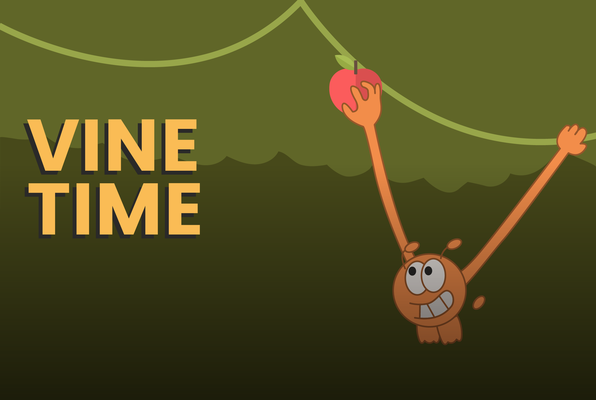
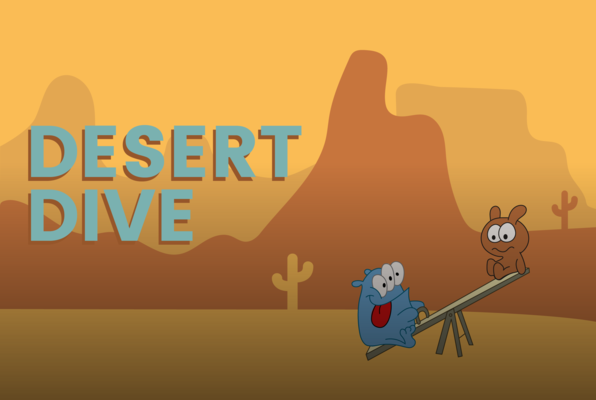

.jpg)


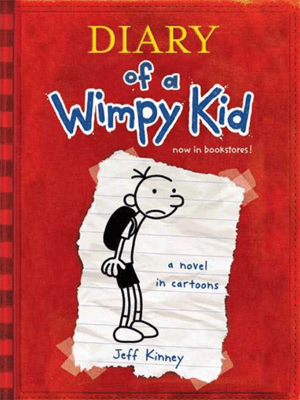

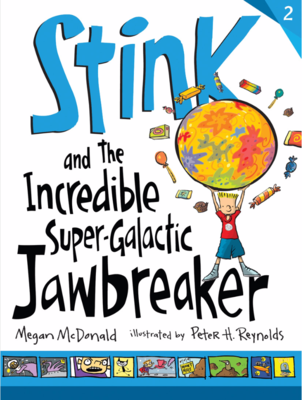
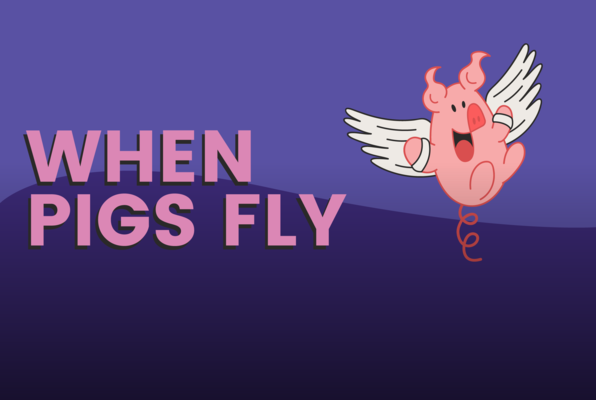


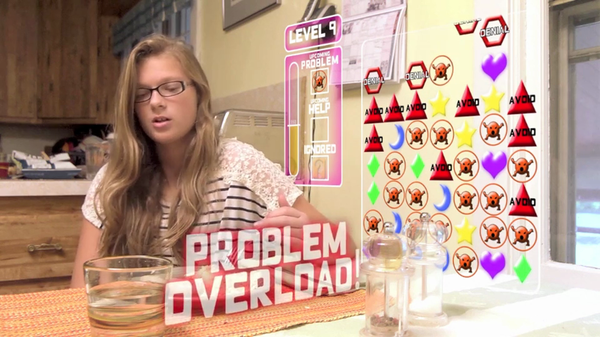
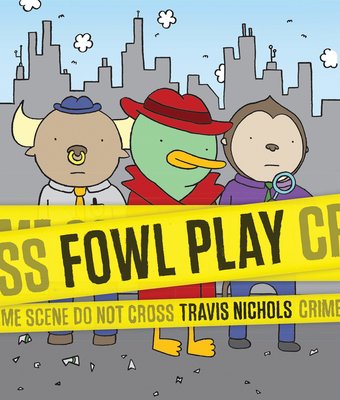
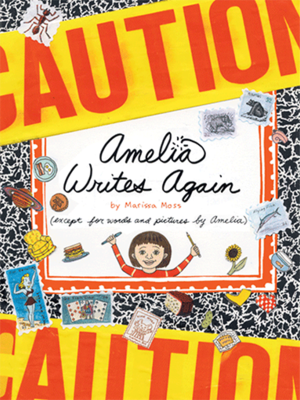
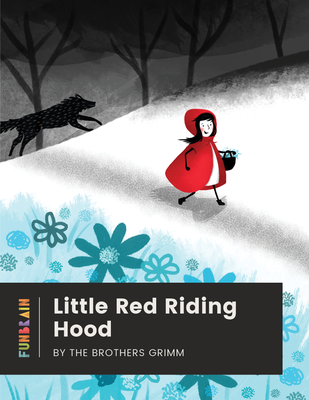




 1-Minute Maths: Multiplication (1)
1-Minute Maths: Multiplication (1)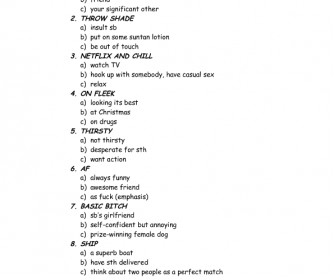 Internet Slang Quiz
Internet Slang Quiz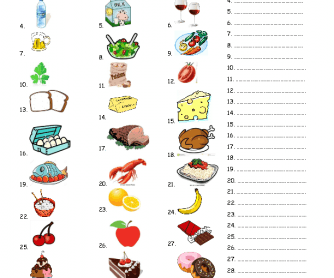 Food Vocabulary
Food Vocabulary
Немає коментарів:
Дописати коментар